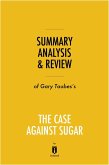Covid-19 By Klaus Schwab
COVID-19: The Great Reset by Klaus Schwab and Thierry Malleret begins with a reflection on how COVID-19 has triggered a worldwide crisis, not just through the tragic loss of life that it has incurred, but also to economic systems and the vulnerability of human life itself. It has caused, above everything, a global existential crisis that is likely to impact life as we know it forever. Despite our most fervent hopes, we will not return to normal, as we know it, whatever our beliefs and concerns about the draconian measures employed to keep the virus contained. Things will necessarily change, whether we want them to or not.
However, the authors add a note of caution when it comes to discussions about what might happen and what will happen as the world reopens. Many of the changes and movements already in place, for better or worse, will have been exacerbated by the pandemic, and divisions that were but fissures before may now open up to great chasms.
The chapter goes on to look at the role of pandemics and viruses in the history of the world. To put it in perspective: viruses have been on the earth for at least 300 million years, whereas humans have only been here for a fraction of that time, about 200,000 years. It is hardly surprising to find that an era without a pandemic is something of an anomaly, and the authors point to the diseases that have ravaged the world and shaped recorded human history. They look at the Plague of Justinian in the 6th century, the Black Death, and the germs that obliterated the Aztecs and the Incas when introduced by the European settlers. Even some of the terminology around, how we treat and control viruses comes from treasured sacred texts: 'quarantine,' for instance, comes from the Italian 40, referring to the 40 days of purification during the biblical flood. Viruses have caused suspicion and death, too.
As a species, we must harness the strengths of a globalized world to rebuild it in a way that can defend itself against the ever-present threat of global viruses. In doing so, we can rebuild in a way that allows the most vulnerable to thrive and create new systems to be more resilient against the ravages of nature.
The introduction concludes by explaining that the role of this book is to shed light on some of the theories and ideas about what is likely to happen following the pandemic, and, in some cases, what perhaps should happen if we are to navigate our way through the new normal in a post-COVID world.
COVID-19: The Great Reset by Klaus Schwab and Thierry Malleret begins with a reflection on how COVID-19 has triggered a worldwide crisis, not just through the tragic loss of life that it has incurred, but also to economic systems and the vulnerability of human life itself. It has caused, above everything, a global existential crisis that is likely to impact life as we know it forever. Despite our most fervent hopes, we will not return to normal, as we know it, whatever our beliefs and concerns about the draconian measures employed to keep the virus contained. Things will necessarily change, whether we want them to or not.
However, the authors add a note of caution when it comes to discussions about what might happen and what will happen as the world reopens. Many of the changes and movements already in place, for better or worse, will have been exacerbated by the pandemic, and divisions that were but fissures before may now open up to great chasms.
The chapter goes on to look at the role of pandemics and viruses in the history of the world. To put it in perspective: viruses have been on the earth for at least 300 million years, whereas humans have only been here for a fraction of that time, about 200,000 years. It is hardly surprising to find that an era without a pandemic is something of an anomaly, and the authors point to the diseases that have ravaged the world and shaped recorded human history. They look at the Plague of Justinian in the 6th century, the Black Death, and the germs that obliterated the Aztecs and the Incas when introduced by the European settlers. Even some of the terminology around, how we treat and control viruses comes from treasured sacred texts: 'quarantine,' for instance, comes from the Italian 40, referring to the 40 days of purification during the biblical flood. Viruses have caused suspicion and death, too.
As a species, we must harness the strengths of a globalized world to rebuild it in a way that can defend itself against the ever-present threat of global viruses. In doing so, we can rebuild in a way that allows the most vulnerable to thrive and create new systems to be more resilient against the ravages of nature.
The introduction concludes by explaining that the role of this book is to shed light on some of the theories and ideas about what is likely to happen following the pandemic, and, in some cases, what perhaps should happen if we are to navigate our way through the new normal in a post-COVID world.
Dieser Download kann aus rechtlichen Gründen nur mit Rechnungsadresse in A, D ausgeliefert werden.









